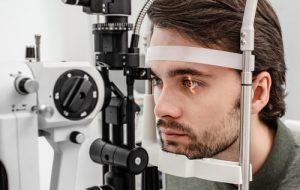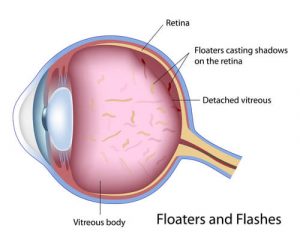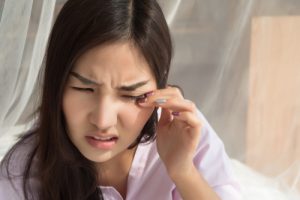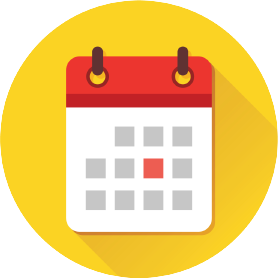Going to the eye doctor is crucial for keeping your eyes healthy. The hope is that you see your eye doctor and leave with a clean bill of health.
But to make the most of your appointment at Sierra Nevada Eye Center, you should come prepared. If your vision has suddenly changed and your eyes feel drier or more irritated, your eye exam is the best time to discuss these issues.
Addressing these concerns sooner than later can help you get the care you need, including treatment if necessary. No matter how old you are, eye exams are essential for healthy eyes. Not sure what to ask your eye doctor before your next appointment? Keep reading for 6 of the best questions to ask your eye doctor!
1. How Often Should I Have Eye Exams?

Knowing how often to schedule eye exams is perhaps one of the most important questions you can and should ask your eye doctor. There are general recommendations about how often you should have regular eye exams based on age.
If you’re 40 or older, you should see an eye doctor at least once every two years. Once you’re 50, you should start seeing them at least every year.
But you may need to have regular eye exams more frequently or earlier in life based on your risk for certain eye diseases. Your eye doctor can assess your risk by going over your complete medical history and family medical history.
Your eye doctor can tell you exactly how often you should have eye exams based on this knowledge. Any eye diseases you may develop can be diagnosed in the early stages when treatment is often most effective.
Once you have this information, you can set up a schedule of when to come in for eye exams that fits your age, lifestyle, and family history best.
2. Why Am I Seeing Floaters?

Floaters are common and are often a harmless byproduct of aging. However, it’s always best to ask your eye doctor about any new floaters.
If you start to see more than usual, many appear at once, or they’re accompanied by flashing lights or other visual aberrations, they may signify a serious eye condition. If you ever experience these changes suddenly, seek emergency medical care.
But if you’ve just started seeing floaters or have noticed a few more than usual, this is something to bring up and ask your doctor about at your next routine eye exam. Seeing more flashes and floaters is something that your eye doctor can watch out for during subsequent visits.
3. Why Do My Eyes Hurt?

Experiencing eye pain is never good, especially if it doesn’t go away or keeps coming back. Frequent eye pain may be a sign of a concerning eye condition.
It can also be a side effect of more common issues like eye rubbing, computer vision syndrome, or sun damage. These issues are preventable and treatable.
Even if your eye pain seems minor at best, make sure to discuss it with your eye doctor so they can find the root cause. If it ends up being minor, they can recommend simple treatments like reducing your screen time, practicing the 20-20-20 rule, and wearing sunglasses whenever you’re spending time outside.
4. Why Are My Eyes Dry?
When your eyes feel dry, it may be due to your environment, which is more likely if you live in an arid place like Nevada, which is dry and hot. But dry eyes can also be a persistent issue triggered by hormonal changes, medication, or certain medical conditions.

These triggers often lead to dry eye syndrome, a chronic eye condition that millions of people suffer from globally. By asking your doctor about your symptoms, they can help determine the cause and diagnose you accordingly.
They can recommend non-invasive treatments and therapies to alleviate your dry eye symptoms. These may include making small lifestyle changes paired with medications or in-office procedures. How they treat your dry eyes depends on the severity of your symptoms and what’s causing them.
5. What Should I Eat for Healthy Eyes?

Nutrition is vital when it comes to good vision and having healthy eyes. Your eye doctor can tell you what kind of nutrients you should be getting and may even be able to tell what nutrients are lacking in your current diet.
For example, if you suffer from dry eyes, they may recommend you eat more food containing omega-3 fatty acids. Omega-3 fatty acids are good for healthy tear production.
Foods with plenty of omega-3 fatty acids include fatty fish like tuna and salmon, walnuts, and seeds. If you struggle to get these nutrients from your diet, you can always look into taking supplements.
There are a lot of different vitamins and nutrients that are good for various aspects of your eye health. Your eye doctor can tell you more specifics to get all the necessary nutrients to maintain healthy vision. Eating plenty of fruits and vegetables is an excellent place to start!
6. When Should I Start Worrying About Cataracts?

Although cataracts seem like something only older people have, it’s not true. They can develop in your forties or fifties. You can have cataracts without even knowing it.
Whether you think you’re too young for cataracts or believe it may be time to consider cataract surgery, discussing them with your eye doctor is never a bad idea. Knowing about cataracts before having them will help you understand them and how they can affect your vision.
If you need to have cataract surgery, this is something to discuss with your eye doctor at Sierra Nevada Eye Center eye doctor. Before having the procedure, you’ll need to decide on an intraocular lens (IOL), which your eye doctor will recommend what they think is the best fit for you.
Their recommendation comes from evaluating your lifestyle, visual goals after cataract surgery, and personal needs. Speaking up about cataracts sooner than later can help set your mind at ease if you’re nervous.
Need to see your eye doctor? Schedule your appointment with a member of our team at Sierra Nevada Eye Center in Reno, NV, to keep your eyes healthy!


